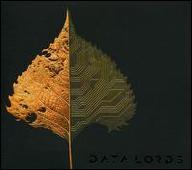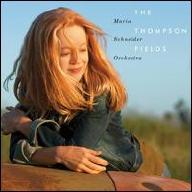Born in 1960 in Windom, Minnesota, Schneider took piano lessons growing up and credits her teacher for introducing her to classical and stride styles and for giving her a solid grounding in music theory. After high school, she studied theory and composition with a focus on jazz at the University of Minnesota. From there, she earned her master's degree from the Eastman School of Music in Rochester, New York. In 1985, she moved to New York City where she worked as a copyist and assistant for legendary composer/arranger Gil Evans, assisting him on a variety of projects, including his score for Martin Scorsese's 1986 film The Color of Money, his 1991 reunion with trumpeter Miles Davis as documented on Miles Quincy Live at Montreux, as well as arrangements for Sting, among others. Also during this period, Schneider continued her education, studying under trombonist Bob Brookmeyer as part of a National Endowment for the Arts apprenticeship grant.
As a leader, she founded the forward-thinking collective Maria Schneider Orchestra in 1992, appearing regularly with the ensemble throughout the '90s at Visiones in Greenwich Village. She showcased the group on 1992's Evanescence, featuring contributions by pianist Kenny Werner, tenor saxophonist Rick Margitza, altoist Tim Ries, trumpeter Tim Hagans, and others. Equally sophisticated albums followed, including 1995's Coming About, 2000's Allegresse, and 2001's Days of Wine and Roses.
In 2004, Schneider was the first performer to release an album via the crowdfunding platform ArtistShare with Concert in the Garden. The album took home the Grammy for Best Large Jazz Ensemble Album (the first crowd-funded album to do so). More accolades followed, including winning the Grammy Award for Best Instrumental Composition for her song "Cerulean Skies" off 2007's Sky Blue. She also took home the Grammy for Best Contemporary Classical Composition for her collaboration with soprano Dawn Upshaw on 2013's Winter Morning Walks. An expansive recording, it featured Upshaw playing alongside members of Schneider's orchestra, the Australian Chamber Orchestra, and readings from the works of Pulitzer Prize-winning poet Ted Kooser. It landed at number eight on the Billboard Classical Albums chart.
In 2015, Schneider released The Thompson Fields, which featured contributions by saxophonists Donny McCaslin and Scott Robinson, guitarist Lage Lund, pianist Frank Kimbrough, and others. A highly autobiographical and pastoral recording inspired by the Minnesota farm where she grew up, it peaked at number nine on the Billboard Jazz Albums chart and won the Grammy for Best Large Jazz Ensemble Album. That same year, she also took home the Grammy for Best Arrangement, Instrument or Vocals, for her work on David Bowie's song "Sue (Or in a Season of Crime)" off his 2014 compilation Nothing Has Changed.
Awarded an honorary doctorate by the University of Minnesota in 2012, Schneider has worked around the globe, conducting and collaborating with such ensembles as the Manhattan School of Music Jazz Orchestra, the SWR Big Band, Jazz at Lincoln Center, the Saint Paul Chamber Orchestra, the University of Miami Concert Jazz Band, and many others. Along with advocating for musician's rights, she has also published numerous papers on streaming, digital rights, and issues with piracy. In 2020, she brought these experiences to bear on her ambitious album Data Lords. ~ Matt Collar, Rovi
|
1
|
|
Hang Gliding |
|
2
|
|
Wyrgly |
|
3
|
|
Giant Steps |


















